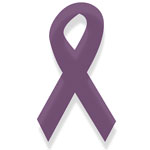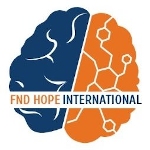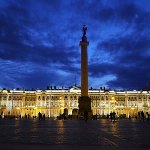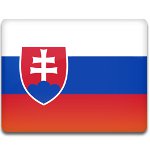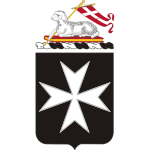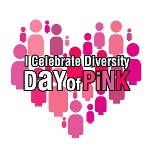Holidays Calendar for April 13, 2016
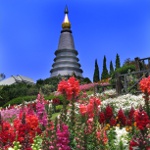 Public Holidays →
Thailand,
Laos,
Maldives,
India,
Nepal,
Bangladesh,
Myanmar,
Sri Lanka,
Cambodia
Public Holidays →
Thailand,
Laos,
Maldives,
India,
Nepal,
Bangladesh,
Myanmar,
Sri Lanka,
Cambodia
New Year in South and Southeast Asia
Most people think that Asian countries only use lunar (or, to be more precise, lunisolar) calendars. While this is true to some extent, there are exceptions. For example, the date of the traditional New Year’s festival in many countries of South and Southeast Asia is based on the entry of the sun into the constellation of Aries. In modern times, it usually occurs around April 13 in the Gregorian calendar.
World's Day of Remembrance for Victims of Katyn Massacre is a national holiday in Poland, although it is typically a working day unless it falls on a weekend. This remembrance day is observed annually on April 13.
Word Sarcoidosis Day, also known as World Sarcoidosis Awareness Day, is observed annually on April 13. It was created to raise awareness of a systemic inflammatory disease that can affect the lungs, skin, lymph nodes, and other organs.
International FND Awareness Day is observed annually on April 13. It was created to raise awareness of functional neurological disorder, a neurological condition in which the nervous system has trouble transmitting signals between the brain and the body.
International Plant Appreciation Day is celebrated annually on April 13. This informal holiday was created to highlight the importance of plants for ecosystems and the immense role they plat in our lives.
Ecuadorian teachers celebrate their professional holiday, Teachers' Day, on April 13. This holiday was established in honor of Juan Montalvo, an outstanding Ecuadorian author.
Military-Industrial Complex Employee Day is one of the official professional holidays celebrated in Ukraine. It was established by President Volodymyr Zelenskyy to highlight the importance of the military-industrial complex for ensuring national security and protecting the state sovereignty of Ukraine, as well as recognize the significant contribution of military-industrial complex employees to strengthening the country’s defense capabilities.
The Day of Patrons and Philanthropists, also known as the Day of Patrons and Benefactors, is an unofficial holiday celebrated on April 13 in Russia. Its celebration was initiated by the State Hermitage Museum in Saint Petersburg, which is the world’s largest art museum by gallery space.
April 13 is Thomas Jefferson's Birthday, the third President of the USA. He is considered as an American Founding Father and the author of the Declaration of Independence.
Unfairly Prosecuted Persons Day (Deň nespravodlivo stíhaných) is a Slovakian remembrance day observed on April 13 every year. It was established to commemorate the dissolution of male monasteries in Communist Czechoslovakia.
National Borinqueneers Day is celebrated annually on April 13. It was created to honor the contributions and commemorate the sacrifice of the 65th Infantry Regiment, a Puerto Rican regiment of the United States Army.
Sweet and crumbly, peach cobbler is an all-time American favorite, so it is not surprising that there is a National Peach Cobbler Day. What is surprising is that it is celebrated on April 13, when peaches are not in season. Well, you can always make cobbler using canned peaches to celebrate the day!
April 13 is a perfect day to host a game night for your friends and family and play Scrabble because it is National Scrabble Day. The holiday commemorates the birthday of Alfred Mosher Butts, an American architect who invented this beloved game.
April 13 is a great day to get away from your desk for lunch because it is National Make Lunch Count Day. This holiday was created to remind people that a change of scenery during lunch break can do wonders for their productivity and mental health.
The Day of Pink, sometimes referred to as the International Day of Pink, is a Canadian anti-bullying awareness campaign held on the second Wednesday of April. On this day, people are encouraged to wear an item of pink clothing to raise awareness of bullying, discrimination, homophobia and transphobia.
Festivals for April 13, 2016
- Tribeca Film Festival in New York, USA
- London Book Fair in London, United Kingdom
- Seville Fair in Seville, Spain
- Milan Furniture Fair in Milan, Italy
- Facebook F8 in San Francisco, USA
- Calgary Underground Film Festival in Calgary, Canada
- Subaru Cherry Blossom Festival of Greater Philadelphia in Philadelphia, USA
- Vinitaly in Verona, Italy
- Trans-Siberian Art Festival in Novosibirsk, Russia
- Scarborough Renaissance Festival in Waxahachie, USA
- Festival of Tolerance (JFF Zagreb) in Zagreb, Croatia
- Budapest Spring Festival in Budapest, Hungary
- World Ski & Snowboard Festival in Whistler, Canada
- International Istanbul Film Festival in Istanbul, Turkey
- Indonesia International Motor Show (IIMS) in Jakarta, Indonesia
This Day in History
- 2023 The FBI arrested American airman Jack Teixeira following an investigation into the removal and disclosure of hundreds of classified Pentagon documents.
- 2018 Died: Miloš Forman, Czech-American film director, screenwriter, actor and professor. His film One Flew Over the Cuckoo's Nest became the second film to win all five major Academy Awards.
- 2015 Died: Günter Grass, German novelist, poet, playwright, illustrator, graphic artist, sculptor, and recipient of the 1999 Nobel Prize in Literature.
- 2014 In Mexico, a bus traveling from Villahermosa to Mexico City crashed into a tractor-trailer and caught fire. 36 people died and 4 were injured in the accident.
- 2013 Died: Frank Bank, American actor who is remembered for his role as Clarence "Lumpy" Rutherford on the sitcom Leave It to Beaver.
- 2008 Died: John Archibald Wheeler, American theoretical physicist who participated in the Manhattan Project and development of the hydrogen bomb.
- 1992 In the city of Chicago, the leak in a utility tunnel beneath the Chicago River caused the flood that devastated much of the central Chicago.
- 1988 Born: Allison Williams, American actress. She is known for her television roles in Girls, A Series of Unfortunate Events, and Fellow Travelers.
- 1983 Died: Theodore Stephanides, Greek writer, poet, naturalist, and doctor who is probably best remembered as Gerald Durrell's mentor and friend.
- 1975 Born: Lou Bega, German singer. His 1999 song "Mambo No. 5", a remake of Pérez Prado's 1949 instrumental piece, reached no. 1 in many European countries and was nominated for a Grammy Award.
- 1975 Died: Larry Parks, American stage and film actor best known for his role as Al Jolson in the films The Jolson Story and Jolson Sings Again.
- 1966 Died: Abdul Salam Arif, the 2nd President of Iraq who ruled the country from 1963 until his death. He played the leading role in the overthrow of the Hashemite monarchy.
- 1963 Born: Garry Kasparov (born Garik Weinstein), Soviet and Russian chess Grandmaster, World Chess Champion (from 1985 to 1993), one of the greatest chess players of all the time.
- 1960 The United States successfully launched the Transit 1B satellite. TRANSIT (NAVSAT) was the world's first satellite navigation system to be used operationally.
- 1958 23-year-old American pianist Van Cliburn won the first International Tchaikovsky Competition in Moscow at the height of the Cold War.
- 1951 Born: Peter Davison, English actor with many credits in television dramas and sitcoms. He is known for portraying the fifth incarnation of the Doctor in Doctor Who.
- 1950 Born: Ron Perlman, American actor. As a frequent collaborator of Guillermo del Toro, he has had roles in the del Toro films Cronos, Blade II, Hellboy, Pacific Rim, Asher, Nightmare Alley, and Pinocchio.
- 1948 78 Jewish doctors, nurses, patients, students, faculty members, Haganah fighters, and a British soldier from a medical convoy were ambushed and killed by Arab forces in Jerusalem.
- 1945 Died: Ernst Cassirer, German philosopher who is considered to be one of the leading advocates of philosophical idealism in the 20th century.
- 1944 Born: Charles Burnett, American director, producer, editor, actor, and writer whose best known films include Killer of Sheep, My Brother's Wedding, The Glass Shield.
- 1941 The USSR and Japan signed the Soviet-Japanese Neutrality Pact two years after the brief Soviet-Japanese Border War, also known as the Battles of Khalkhyn Gol.
- 1941 Died: Annie Jump Cannon, American astronomer who made a significant contribution to the development of modern stellar classification.
- 1938 Died: Grey Owl (born Archibald Belaney), English-born Canadian environmentalist and writer remembered primarily for his conservation work.
- 1922 Born: Julius Nyerere, Tanzanian politician who served as the leader of Tanganyika, the United Republic of Tanganyika and Zanzibar, and Tanzania.
- 1919 The Provisional Government of the Republic of Korea was established during the Japanese Korean period. It was not formally recognized by world powers.
- 1912 Died: Takuboku Ishikawa, Japanese poet who is known as both a modern-style and tanka poet. He died at age 26 of tuberculosis.
- 1906 Born: Samuel Beckett, Irish novelist, playwright, essayist, poet, and theater director. He was awarded the 1969 Nobel Prize for Literature.
- 1870 The Metropolitan Museum was granted an Act of Incorporation by the New York State Legislature. It first opened two years later, on February 20, 1872.
- 1853 Born: Frank Winfield Woolworth, American entrepreneur who founded F. W. Woolworth Company. He is remembered for his five-and-dime stores.
- 1771 Born: Richard Trevithick, British inventor and mining engineer. One of his most significant inventions is the first high-pressure steam engine.
- 1769 Born: Thomas Lawrence, English painter and the president of the Royal Academy from 1820 to 1830. He is one of the most outstanding portrait painters.
- 1743 Born: Thomas Jefferson, American revolutionary, one of the Founding Fathers of the United States, the principal author of the Declaration of Independence and the 3rd President of the US.
- 1742 George Frideric Handel's oratorio Messiah was first performed in Dublin. Eventually it became one of the best-known choral works in Western music.
- 1695 Died: Jean de La Fontaine, French fabulist and poet whose collection of fables provided a model for subsequent fabulists across Europe, such as John Gay, Ivan Krylov, and others.
- 1570 Born: Guy Fawkes, English soldier who is remembered for planning the failed Gunpowder Plot of 1605 along with fellow provincial English Catholics.
- 1519 Born: Catherine de' Medici, Queen consort of France from 1547 to 1559 as the wife of King Henry II. Three of her sons became kings of France during her lifetime.
- 1204 The Fourth Crusade: the crusaders invaded and sacked Constantinople, the Orthodox Christian capital of the Byzantine Empire.

